Harry
Potter - The Deathly Hallows.
Psychology Version. Second
part. English Version.
Harry
Potter learns that Dumbledore has
had some serious family problems. Aberforth,
Dumbledore's brother, is not a great lover of books; he prefers to settle
disputes with a duel rather than a quiet discussion. Kendra, Dumbledore's
mother, dies and shortly afterwards her sister Ariana also ceases to live:
Aberforth is the individual
who doesn’t know how to react to the frustrations
of life in a balanced and optimal way, precisely because over time, he has
accumulated aggression without being able to control it. In fact, many parents
unfortunately don’t pay attention to the feelings
of their children. Put simply, the attention of many educators focuses mainly
on the school results, food, clothing and sports
activities of their descendants, and they neglect to ask their children
what emotions and reactions they
have had in daily frustrations; for example in the relationship with classmates
or teachers. Frequently, we live together without really knowing each other.
The body is nourished and the rational side is fed with a deafening culture,
but the child is deprived of the "nourishment" of the soul, which is
called: listening. Thus, anxiety,
insecurity, negativity, thoughts become obsessive in young people, and anger
develops over time; which, if not channeled and elaborated, can lead to vandalism, outbursts of anger, disruptive
diatribes and so on.
Harry
Potter glimpses Dumbledore's blue
eyes in a mirror:
Harry Potter is the teenager who, before
facing a severe test, needs to look in the mirror, to find strength and
confidence in the introjected parent
(Dumbledore). In fact, each of us
during our childhood and adolescence... unconsciously tends to memorize the
attitudes and opinions of our parents or reference figures, in the "warehouse" of unconscious memory.
This mental process is necessary to help the young person, to manage with the
difficulties and tribulations of life.
Harry Potter's friends to save him from Voldemort, by
means of the Polyjuice, take the
form of Harry:
Harry Potter's friends who take his form to protect him from Voldemort, symbolize the family, friends and acquaintances of a
boy, who to help him grow and develop with balance, try to get in harmony with
his inner feelings and problems. In a nutshell, a child needs people who are
empathetic and loving to properly develop his intrinsic individuality and
faculty; of individuals who know how to understand the young person intimately,
having the knowledge of grasping the discomforts, anxieties and fears of him.
And to achieve all this, we need to put ourselves in the shoes of whoever we
want to help. Event exhibited in the novel, by Harry Potter's friends who take the physical form of him.
Dumbledore gave Harry Potter a
mission, and that is to destroy the
Horcruxes. In fact, Voldemort divided
the soul by placing it in different Horcruxes. Hermione states that dividing
one's soul makes one unstable:
In this
narrative context, Dumbledore is the
figure of a loving and provident parent who suggests to his son (Harry)
that in order to develop and increase his identity, he must overcome negative
thoughts and traumatic experiences (Horcruxes),
experienced in childhood; through an inner search that sheds light on past
sufferings, and then heals the wounded parts of the ego.
Every
human being experiences painful and traumatic facts (Horcruxes) in his own
existence, and if an individual (Voldemort)
remains too conjoined and clinging to them, he can become unstable and anxious. In fact, if these traumatic events remain
isolated and too impregnated with negativity or are not resolved, they can cause psychological problems such as states
of anxiety, inner conflicts, psychosis, anger and phobias. It’s therefore
necessary to grasp the "sword"
(sword of Gryffindor) of truth and
knowledge, and with the help of a benevolent parent, it’s necessary to rework
the negative experiences of the past (Horcruxes).
Dumbledore leaves at Ron the Deluminator, who has the power to suck the light out of a place and
bring it back. At Hermione, Dumbledore gives a book of fairy tales. Finally Dumbledore gives at Harry Potter a Golden Snitch, which is used for
Quidditch matches, and the sword of
Gryffindor:
Dumbledore is the
representation of a good parent, who
bestows gifts on his descendants that help them mature with serenity. The Deluminator
is an allegory of the "light"
of the knowledge of the dangers to be avoided; and also the deluminator
illustrates the warnings and advice full of truth that a parent teaches their
children, to know how to untangle themselves in the convulsive tangle of life
experiences. The storybook expresses the creativity that a child must never
lack, which allows him to develop his own inventiveness and imagination... all
essential essences for those with artistic skills. The Golden Snitch that contains the stone of resurrection is an emblem of the inner strength that the
descendant must develop, in order to be able to "rise again" to the many disappointments and sufferings
experienced in the course of life. Finally, the sword of Gryffindor expresses the word used with dexterity and
ability of expression, which must be declared without hesitation and false
shyness, to counter the lies and recklessness uttered by others. Indeed, the
person becomes assertive when he has had a parent (Dumbledore) who helped him to express his opinions, with simplicity
and truth.
Harry
Potter discovers that the sword can destroy Horcruxes. Furthermore, Harry learns that Dumbledore has been friends with a wicked wizard named Grindelwald in the past; and for a
short time he agreed with his friend on the fact that wizards predominate over Muggles. Shortly thereafter the two
quarreled, and Dumbledore defeated him in a duel:
If a descendant had a parent
who allowed him to express his opinions and concepts with freedom, love and balance, as the child grows up
he will be able to discern what is
right from what is harmful (Horcrux).
On the contrary, all those who have had parents who didn’t listen to them or
who criticized them when they expressed subjective opinions, growing up these
people risk being intimidated or frightened by expressing their own opinions,
emotions or beliefs; and furthermore they risk becoming entwined in the false
conjectures expressed by others. This is because their esteem has not developed properly, and for this reason they feel
inferior and not worthy to express their feelings truthfully. In short, all
those who have not been able to express their points of view, opinions and
emotions in their own family habitat, run the risk of becoming people with low self-esteem; and it will be this
little self-esteem that can lead these individuals to become subjugated and
annihilated by the erroneous opinions (Horcruxes)
of their neighbors (Voldemort).
Harry
Potter chases a doe made of light, and then in a lake he sees the sword of Gryffindor. With Ron's help, he manages to wield the
sword. Suddenly a voice emerges from a Horcrux medallion that takes shape and
instigates Ron, asserting that he is the eternal second and that his girlfriend
loves Harry. Harry tells Ron not to listen to the insidious voice; finally Ron
with the sword of Gryffindor breaks
the Horcrux medallion:
When a person realizes that he
has a false personality, he
understands that to recover his real identity he must grab the "sword" of truth (sword of
Gryffindor) and fight against the false mental superstructures (Horcruxes) incorporated in childhood.
In this narrative context, the
Horcrux medallion that fills Ron's mind with negative and lying thoughts,
symbolizes the false and unhealthy
emotions that come from a "False
Self", which seek to deconstruct the integrity of the ego. At this
point the person must try to break all these falsehoods, by means of the
wonderful "sword" of truth
which is in the service of a "True
Self".
Ron found Harry Potter
thanks to the deluminator, whose
light entered him and led him to Harry:
Ron, who, thanks to the
deluminator, manages to find Harry
Potter, symbolizes the young man who, thanks to the benevolent help of his
parent, manages to develop and rediscover his "True Self" (Harry). Indeed, the light of the deluminator is an allegory
of light introjected from an early age, by a child who had a loving parent, who
was able to instill trust and serenity
in the heart of his descendant. In short, the "True Self" and one's real identity develop correctly when one
has benevolent, available and balanced parents, who have been able to give
their children love, understanding and listening.
Here, in the difficulties of life, the child will be able to deal with them
successfully, thanks to the positive
experiences introjected in
childhood.
Hermione tells the "Story of the Three Brothers":
...three brothers reach a river and meet the Death, who claims that she wants
to give the three brothers a prize for being good at escaping her. To the older
brother who was belligerent, she gave a wand
more powerful than the others; a
wand that makes him wins in duels. The first brother is then killed by a
magician, who steals his wand:
The first brother, who desires the wand
of power, brings us back our attention to those who lived in a family environment
devoid of moral rules. Not surprisingly, there are some parents who believe
that loving their children consists of giving them whatever they ask for; or they think that their children must
always be considered right. However, by doing so small tyrants grow, which from adults can become real bullies and despotic, who try in every
way to satisfy their own drives or needs, to the detriment of others. We have
to understand that moral and ethical
rules, are not limits, but on the contrary they are indications and signals that are used by children to facilitate
them in the face of life's problems. In addition to the rest, moral rules are
the antechamber of empathy towards
other people. In fact, the empathic person knows how to understand the needs
and sufferings of others, while maintaining a substantial inner balance.
To the second brother who was arrogant, the Death gave him a stone that
had the ability to make the dead live. The second brother recalls his
prematurely deceased fiancée from death; but after seeing that she was sad and
cold... the second brother kills
himself:
Whoever has a heart of stone is actually the person
who destroyed and killed his own "True
Self" (the second brother's fiancée).
In fact, the "True Self" cannot only be annihilated by dictatorial or
unloving parental figures, but it can also be dissipated and disheartened by
the individual who has hardened his heart in the face of the truth: that each
of us is a unique and unrepeatable being, but that doesn’t mean that we are superior or better than our neighbor.
In other words, if we believe ourselves more important than our neighbor, our
"True Self" perishes and
demeans, just like the girlfriend of the second brother.
Ariana, Dumbledore's sister, was attacked by some Muggles boys at the age of six, because
she had seen her do magic. Ariana has since been shocked and gone mad, as she
didn't want to use magic. Ariana's father was locked up in prison because he
assaulted the Muggles boys. Her
magic shot out of Ariana out of control, and to keep her safe Dumbledore had to
hide it:
Ariana is the person who
is criticized and negatively judged by others, regarding their way of behaving
and their personality. And it’s logical to observe that in these cases, the
person who is the victim of fierce criticism and bullying… can at some point
inhibit and annihilate his real
personality. This event can also happen in family environments, where it’s not
possible to accept the descendants in their real individuality and subjectivity. Here then the child feels
forced to hide and mystify his
"True Self" (Ariana),
creating and forming a "False Self"
that conforms and shapes on the wishes and expectations of adults. In this
case, in addition to having created a false personality, the enormous stress
caused by the events just narrated, can give rise to some psychosomatic illnesses or addictions to drugs or alcohol.
Dumbledore quarrels with his
brother and his friend; in the fight a magic ray hits his sister Ariana to death:
On the analytic side, we can
consider that if one continues to conceal or annihilate one's real identity (Ariana), over time one risk
suffocating it forever (Ariana dying).
Our physical body always warns us when a side of our real identity is
repressed; all through some signals such as tics, anxiety, depressions, itching
and psychosomatic illnesses. It’s therefore necessary to decipher these
messages that our unconscious sends us, and then it’s necessary to restore
one's real identity.
Dumbledore says that the night
Voldemort killed Harry Potter's
mother, a fragment of Voldemort's
soul entered Harry. Basically, a part of Voldemort lives inside Harry; that's
why Harry Potter speaks Parseltoungue.
And as long as part of Voldemort
clings to Harry, the dark lord cannot die:
As long as we have fragments of negative thoughts introjected into our unconscious memory, we
cannot develop a good self-esteem. In short, if our educators have made us
believe that we are people who don’t deserve love, understanding and
affection... here these negative thoughts continue to develop within us, not
allowing us to increase an optimal self-esteem.
Harry
Potter is killed by Voldemort, and
the Golden Snitch opens letting out
the resurrection stone. Harry senses and talks to his parents, with Sirius Black and Remus Lupin:
When a person is uncomfortable,
in suffering or in the most terrible ordeal, the positive experiences given in
the past by their family, friends and acquaintances (Sirius Black and Remus Lupin)
can come to the rescue; benevolent
experiences that have been unconsciously introjected into long-term memory.
Indeed, these memories of internal parents become reference figures, which help the person to overcome the many
difficulties encountered in the course of life.
Harry
Potter talks to Dumbledore who
confirms that the part of Voldemort, which was in Harry, is now dead. Then
Dumbledore assures that Harry's soul is now all Harry's:
When we are able to get rid of the negative thoughts (Voldemort's fragment) introjected in
childhood, which have created and formed a "False Self", our real
personality returns to its fullest
expression.
Harry
Potter discovers that the luminous doe
was Snape's Patronus. The bright doe
is the same as that of Harry's mother:
When we find our "True Self" (luminous doe), we rediscover the positive sides of our family
(Snape) who had been hidden and darkened for so long. In fact, we must remember
that even family members who have damaged our identity, sometimes didn’t do it
with malice or hatred, but only because they too were subjected to false and obsolete mental superstructures. It’s
therefore necessary to remove the false beliefs assimilated in childhood, but
it’s also necessary to recover the gestures, emotions and positive feelings (Snape's Patronus) that our family
members have had towards us. In this regard, it’s necessary to use the
wonderful gift of forgiveness.
Harry Potter – I Doni della Morte.
Versante Psicologico. Seconda Parte. Italian Version.
Harry Potter viene
a sapere che Silente ha avuto dei problemi familiari non indifferenti. Aberforth,
il fratello di Silente, non è un grande amante dei libri, preferisce risolvere
le dispute con un duello piuttosto che con una discussione tranquilla. Kendra,
la madre di Silente, muore e poco tempo dopo cessa di vivere anche la sorella Ariana:
Aberforth è l’individuo che non sa reagire alle frustrazioni
della vita in maniera equilibrata e ottimale, proprio perché nel corso del
tempo, ha accumulato dell’aggressività senza poter controllarla. Difatti
molti genitori purtroppo non prestano attenzione ai sentimenti dei loro figli.
In parole povere, l’attenzione di molti educatori verte soprattutto sui
risultati scolastici, sul cibo, sul vestiario e sulle attività sportive dei
loro discendenti, e trascurano di chiedere ai loro figli che emozioni e
reazioni hanno avuto nelle frustrazioni quotidiane; ad esempio nel rapporto con
i compagni di scuola o con gli insegnanti. Sovente si vive insieme senza
realmente conoscersi. Si nutre il corpo e si sfama il versante razionale con un’assordante
cultura, ma si priva il figlio del “nutrimento” dell’anima che si
chiama: ascolto. Ecco che allora nel giovane germoglia l’ansia,
l’insicurezza, le negatività, i pensieri divengono ossessivi, e con il
passare del tempo la rabbia si sviluppa; la quale se non è incanalata ed
elaborata, può sfociare in atti vandalici, esplosioni d’ira, in diatribe
dirompenti e via dicendo.
Harry Potter intravede in uno specchio, gli occhi azzurri
di Silente:
Harry è
l’adolescente che, prima di affrontare una dura prova, ha bisogno di specchiarsi,
di ritrovare forza e sicurezza nel genitore introiettato (Silente). Difatti ognuno di noi nel
corso della propria infanzia e adolescenza… inconsapevolmente tende a
memorizzare gli atteggiamenti e opinioni dei nostri genitori o figure di
riferimento, nel “magazzino” della memoria inconscia. Questo processo
mentale, è necessario per aiutare il giovane ad affrontare le difficoltà e
tribolazioni della vita.
Gli amici di Harry Potter per
salvarlo da Voldemort, mediante il polisucco,
prendono le sembianze di Harry:
Gli amici di
Harry Potter che prendono le sue sembianze per proteggerlo da Voldemort,
simboleggiano i familiari, amici e conoscenti di un ragazzo, che per aiutarlo a
crescere e svilupparsi con equilibrio, cercano di entrare in sintonia
con i suoi sentimenti e problematiche interiori. In poche parole, un bambino
per sviluppare correttamente la propria individualità e facoltà intrinseche,
abbisogna di persone che siano empatiche e amorevoli; d’individui che
sappiano comprendere il giovane intimamente, avendo cognizione di cogliere i
suoi disagi, ansie e timori. E per realizzare tutto questo, occorre mettersi
nei panni di chi si vuole aiutare. Evento esposto nel romanzo, dagli
amici di Harry Potter che prendono le sue sembianze fisiche.
Silente ha
dato una missione a Harry Potter, e
cioè distruggere gli Horcrux. Difatti Voldemort ha diviso l’anima
mettendola in diversi Horcrux. Hermione enuncia che dividere la propria
anima, rende instabili:
Silente in
quest’ambito narrativo, è la figura di un genitore
amorevole e previdente che suggerisce al proprio figlio (Harry), che per
sviluppare e accrescere la propria identità, deve superare i pensieri
negativi ed esperienze traumatiche (Horcrux),
sperimentate nell’infanzia; mediante una ricerca interiore che faccia luce sui
patimenti passati, per poi sanare le parti ferite dell’Io.
Ogni essere umano sperimenta nella propria esistenza
dei fatti dolorosi e traumatici (Horcrux), e se un individuo (Voldemort) rimane troppo congiunto
e avvinghiato a essi, può divenire instabile e ansioso. Difatti se
questi eventi traumatici rimangono isolati e troppo impregnati di negatività o
non sono risolti, possono procurare problematiche psicologiche come stati di
ansia, conflitti interiori, psicosi, rabbia e fobie. Occorre allora afferrare
la “spada” (spada di Grifondoro) della verità e conoscenza,
e con l’aiuto di un genitore benevolo, è necessario rielaborare le esperienze
negative del passato (Horcrux).
Silente lascia a Ron
il Deluminatore, che ha il potere di risucchiare la luce da un
luogo e di riportarvela. A Hermione
Silente dona un libro di favole. Infine Silente regala a Harry Potter un
boccino, che si usa per le
partite di Quidditch, e la spada di Grifondoro:
Silente è la
raffigurazione di un buon genitore,
che elargisce ai propri discendenti dei donativi che li aiutano a maturare con
serenità. Il deluminatore è un’allegoria della “luce” della
conoscenza dei pericoli da evitare; e altresì il deluminatore illustra gli
ammonimenti e consigli colmi di verità che un genitore insegna ai propri figli, per sapersi districare nel groviglio
convulso delle esperienze della vita. Il libro di favole esprime la creatività
che non deve mai mancare a un figlio, che gli permette di sviluppare la propria
inventiva e immaginazione… tutte essenze fondamentali per chi possiede doti
artistiche. Il boccino che contiene la pietra della resurrezione
è un emblema della forza interiore che deve sviluppare il discendente, per
poter “risorgere” alle molteplici delusioni e patimenti sperimentati nel
corso della vita. Per finire, la spada di Grifondoro esprime la parola
utilizzata con destrezza e capacità di espressione, che va dichiarata senza
titubanze e falsa timidezza, per contrastare le menzogne e sregolatezze
proferite dal prossimo. Invero, la persona diviene assertiva quando ha
avuto un genitore (Silente) che l’ha aiutata a esprimere le proprie opinioni, con semplicità e verità.
Harry Potter scopre che la spada può distruggere gli Horcrux. Inoltre, Harry viene a sapere
che in passato Silente ha fatto amicizia con un mago perfido di nome Grindelwald;
e per un breve periodo era concorde con l’amico sul fatto di far sì che i maghi
predominassero sui babbani. Poco dopo i due litigarono, e Silente lo
sconfisse in un duello:
Se un discendente ha avuto un genitore che gli ha
permesso di esprimere le proprie opinioni e concetti con libertà, amore
ed equilibrio, ecco che crescendo il figlio riuscirà a discernere ciò che è
giusto da ciò che è nocivo (Horcrux). Al contrario, tutti quelli che hanno avuto dei
genitori che non li ascoltavano o che li criticavano quando esprimevano delle
opinioni soggettive, ecco che crescendo queste persone rischiano di
rimanere intimiditi o intimoriti dall’esprimere le proprie opinioni, emozioni o
credenze; e inoltre rischiano di rimanere avvinghiati alle false congetture
espresse dal prossimo. Questo perché la loro stima non si è sviluppata
correttamente, e per questo motivo si sentono inferiori e non degni di
esprimere con veridicità i propri sentimenti. Per farsi breve, tutti quelli che
non hanno potuto esprimere nel proprio habitat familiare i propri punti di
vista, pareri ed emozioni, rischiano di divenire persone con una bassa stima
in se stessi; e sarà proprio questa poca stima verso se stessi, che può spingere questi individui a
divenire assoggettati e annichiliti dalle opinioni erronee (Horcrux) del
prossimo (Voldemort).
Harry Potter
insegue una cerva fatta di luce, e poi in un lago scorge la spada
di Grifondoro. Con l’aiuto di Ron riesce a brandire la spada. Improvvisamente
da un medaglione Horcrux esce
una voce che prende forma e istiga Ron, asserendo che è l’eterno secondo e che
la sua ragazza ama Harry. Harry dice a Ron di non ascoltare la voce insidiosa;
infine Ron con la spada di Grifondoro rompe il medaglione Horcrux:
Quando una persona si accorge di possedere una falsa personalità, comprende che per
recuperare la propria reale identità deve afferrare la “spada” della verità (spada
di Grifondoro) e combattere contro
le false sovrastrutture mentali (Horcrux)
incorporate nell’infanzia.
In quest’ambito narrativo,
ecco che il medaglione Horcrux che riempie
la mente di Ron di pensieri negativi
e menzogneri, simboleggia le false e malsane emozioni che provengono da un “Falso Sé”, che cercano di destrutturare
l’integrità dell'Io. A questo punto la persona deve cercare di spezzare tutte
queste falsità, mediante la meravigliosa “spada” della verità che è a servizio
di un “Vero Sé”.
Ron ha
ritrovato Harry Potter grazie al deluminatore, la cui luce è
entrata in lui e l’ha condotto da Harry:
Ron che grazie
al deluminatore riesce a trovare Harry
Potter, simboleggia il giovane che grazie all’aiuto benevolo del proprio
genitore, riesce a sviluppare e ritrovare il proprio “Vero Sé” (Harry).
Invero, la luce del deluminatore è un’allegoria della luce introiettata
sin dalla tenera età, da un figlio che ha avuto un genitore amorevole, il quale
ha saputo instillare fiducia e serenità nel cuore del proprio discendente.
Insomma, il “Vero Sé” e la propria reale identità, si sviluppano
correttamente quando si possiedono dei genitori benevoli, disponibili ed
equilibrati, che ai figli hanno saputo donare amore, comprensione e ascolto.
Ecco che nelle difficoltà della vita, il figlio riuscirà ad affrontarle
con successo, grazie alle esperienze positive introiettate nell’infanzia.
Hermione
racconta la “Storia dei Tre Fratelli”: …tre fratelli raggiungono un
fiume e incontrarono la Morte, la quale asserisce che vuole dare un
premio ai tre fratelli per essere stati bravi a sfuggirle. Al fratello
maggiore che era bellicoso, diede una bacchetta più potente delle
altre; una bacchetta che lo fa vincere ai duelli. Il primo fratello è poi ucciso
da un mago, che gli ruba la bacchetta:
Il primo fratello che desidera la bacchetta
del potere, ci riconduce l’attenzione su chi ha vissuto in un ambiente
familiare privo di regole morali. Non a caso, ci sono alcuni genitori
che credono che amare i propri figli consista di donargli qualunque cosa loro
chiedono; oppure pensano che ai figli gli si debba dare sempre ragione.
Tuttavia così facendo si crescono dei piccoli tiranni, che da adulti
possono divenire dei veri prepotenti e dispotici, che cercano in tutti i modi
di soddisfare le proprie pulsioni o bisogni, a scapito del prossimo. Le regole
morali ed etiche non sono dei limiti, ma all’opposto sono delle
indicazioni e segnalazioni che servono ai figli per agevolarli di fronte
alle problematiche della vita. Oltre al resto, le regole morali sono
l’anticamera dell’empatia verso il prossimo. La persona empatica
difatti, sa comprendere le esigenze e sofferenze degli altri, pur mantenendo un
sostanziale equilibrio interiore.
Al secondo fratello che era arrogante, La
Morte donò un sasso che aveva la capacità di far vivere i morti.
Il secondo fratello richiama dalla morte la sua fidanzata deceduta
prematuramente; ma dopo aver visto che era triste e fredda… il
secondo fratello si uccide:
Chi possiede un cuore di sasso o di
pietra, è propriamente la persona che ha distrutto e ucciso il proprio “Vero
Sé” (fidanzata del secondo fratello). Difatti il “Vero Sé” non solo
può essere annichilito da figure genitoriali dittatoriali o poco amorevoli, ma
può essere dissipato e avvilito anche dall’individuo che ha indurito il
proprio cuore di fronte alla verità: che ognuno di noi è un essere unico e
irripetibile, ma questo non significa che siamo superiori o migliori del
prossimo. In altri termini, se ci crediamo più importanti del nostro prossimo,
il nostro “Vero Sé” perisce e svilisce, proprio come la fidanzata
del secondo fratello.
Ariana la
sorella di Silente, a sei anni è stata aggredita da alcuni ragazzi babbani,
poiché l’avevano vista fare delle magie. Ariana da allora è rimasta
sconvolta ed è impazzita, poiché non voleva usare la magia. Il padre
di Ariana fu rinchiuso in prigione poiché ha aggredito i ragazzi. Ad Ariana la magia le schizzava fuori
senza controllo, e per tenerla al sicuro Silente ha dovuto nasconderla:
Ariana è la persona che è criticata e giudicata negativamente dal prossimo,
riguardo al suo modo di comportarsi e per il suo carattere. Ed è logico
osservare che in questi casi, la persona vittima di critiche feroci e bullismo,
può a un certo punto inibire e annichilire la propria reale personalità.
Questo evento può accadere anche in ambienti familiari, dove non si riescono ad
accettare i discendenti nella loro reale individualità e soggettività.
Ecco che allora il figlio si sente costretto a nascondere e mistificare il
proprio “Vero Sé” (Ariana),
creando e formando un “Falso Sé” che si conforma e modella sui desideri
e aspettative degli adulti. In questo caso, oltre ad aver creato una falsa
personalità, l’enorme stress causato dagli eventi appena narrati, può
far sorgere nei figli alcune malattie psicosomatiche o delle dipendenze da
droghe o alcol.
Silente litiga con suo fratello e il suo amico; nello scontro
un raggio magico colpisce a morte la sorella Ariana:
Nel versante analitico, possiamo considerare che, se si
continua a occultare o annichilire la propria reale identità (Ariana),
con il tempo si rischia di soffocarla per sempre (Ariana che muore). Il nostro
corpo fisico ci avverte sempre quando un versante della nostra reale identità è
represso; il tutto mediante alcuni segnali come i tic, l’ansia,
depressioni, i pruriti, angosce o malattie psicosomatiche. Occorre allora decifrare
questi messaggi che il nostro inconscio ci invia, e in seguito occorre
ripristinare la propria reale identità.
Silente dice
che la notte in cui Voldemort uccise la madre di Harry Potter, un frammento
dell’anima di Voldemort entrò in Harry. In pratica, una parte di Voldemort
vive dentro Harry; ecco perché Harry
Potter parla il serpentese. E fintanto che una parte di Voldemort
rimane aggrappata a Harry, il signore oscuro non può morire:
Fintanto che abbiamo dei frammenti di pensieri negativi introiettati nella
nostra memoria inconscia, non possiamo sviluppare una buona stima verso noi
stessi. In breve, se i nostri educatori ci hanno fatto credere di essere
persone che non meritano amore, comprensione e affetto… ecco che questi
pensieri negativi, continuano a svilupparsi dentro di noi, non permettendoci di
accrescere un’autostima ottimale.
Harry Potter
infine è ucciso da Voldemort, e il boccino si apre lasciando fuoriuscire
la pietra della resurrezione. Harry percepisce e parla con i suoi
genitori, con Sirius Black e Remus Lupin:
Quando una persona si trova a disagio, nella sofferenza
o nella prova più terribile, ecco che possono venire in soccorso le esperienze positive elargite in passato
dai propri familiari, amici e conoscenti (Sirius e Lupin). Esperienze
benevole che sono state introiettate inconsciamente, nella memoria a
lungo termine. Invero, questi ricordi dei genitori
interni divengono dei modelli e figure di riferimento, che aiutano
la persona a superare le molteplici difficoltà che s’incontrano nel corso della
vita.
Harry Potter
parla con Silente il quale gli conferma che adesso la parte di
Voldemort, che era in Harry, è morta. Dopodiché Silente assicura che
adesso l’anima di Harry è tutta di Harry:
Quando riusciamo a liberarci dei pensieri negativi
(frammento di Voldemort) introiettati nell’infanzia, che hanno creato e formato
un “Falso Sé”, ecco che la nostra reale personalità torna a esprimersi
al meglio.
Harry scopre che la cerva luminosa, era il Patronus di Piton. La cerva
luminosa è uguale a quella della madre di Harry:
Quando si ritrova il proprio “Vero Sé” (cerva luminosa), si riscoprono i lati
positivi dei nostri familiari (Piton) che per tanto tempo erano rimasti
nascosti e ottenebrati. Infatti, dobbiamo ricordare che anche i familiari che
hanno lesionato la nostra identità, a volte non l’hanno fatto con cattiveria o
odio, ma solo perché erano anche loro assoggettati a sovrastrutture mentali
false e obsolete. È quindi necessario allontanare le false credenze assimilate
nell'infanzia, ma è altresì necessario recuperare i gesti, emozioni e
sentimenti positivi (Patronus di Piton)
che i nostri familiari hanno avuto nei nostri confronti. A questo riguardo,
necessita utilizzare il meraviglioso dono del perdono.
#HarryPotter #Hermione #Ron
#Dumbledore #Voldemort
#flaviasanti #psychology
#spiritual
#psicologia
#psicoanalisi
#psicoterapia
#psico
#Religion #Faith #Prayers #Jesus_Christ
#HolyMary
#MariaSantissima
#christian #cristiani #scifi
#Gospel #Vangelo #Jesus
#Gesù #Cristiani
#Christians
#Filmmaking #movie #fantasy
#hollywood #lungometraggio
#cinema



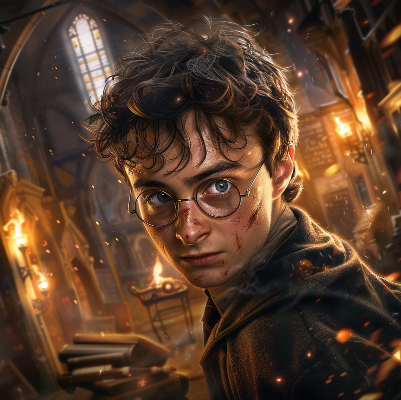



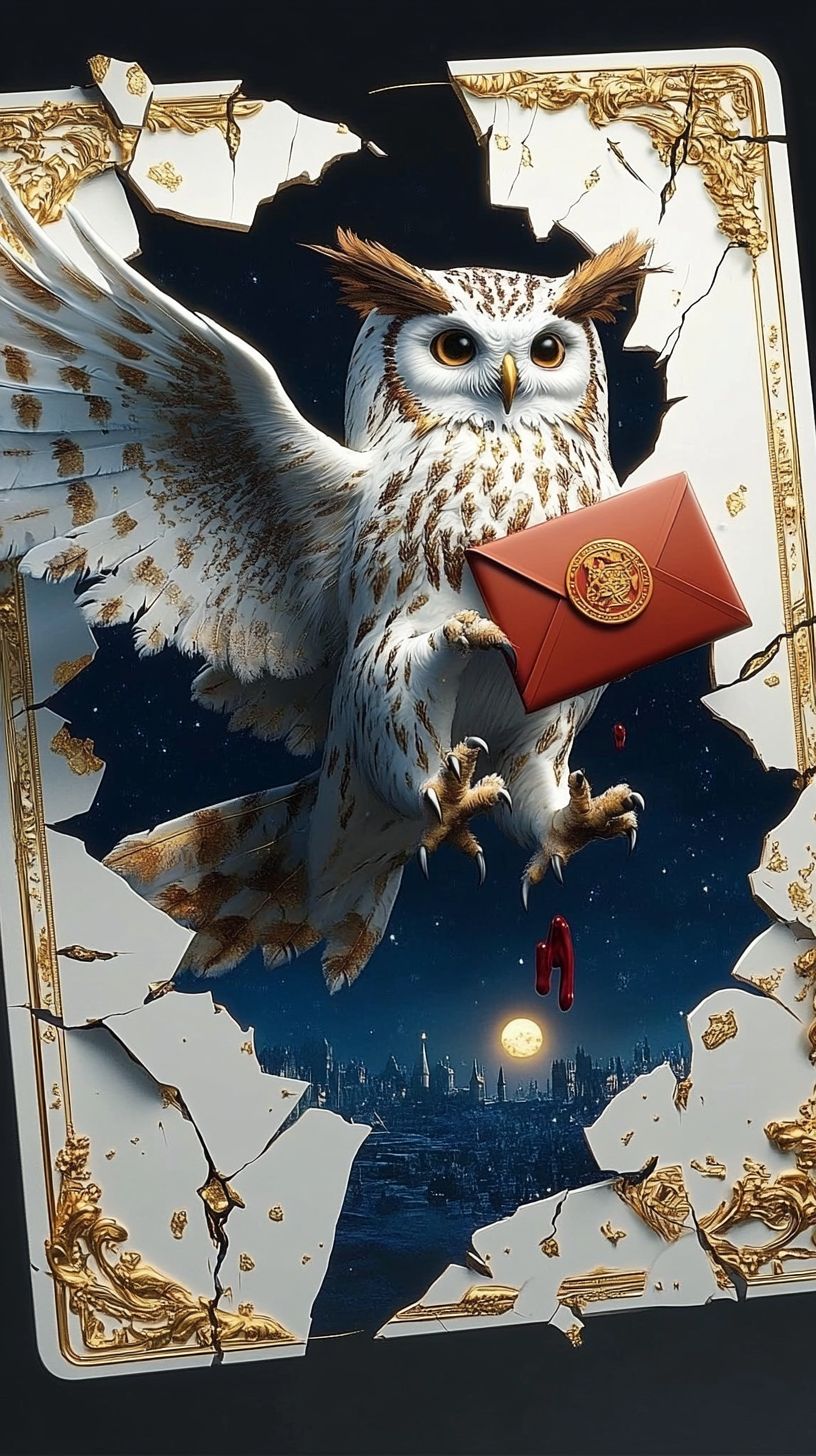

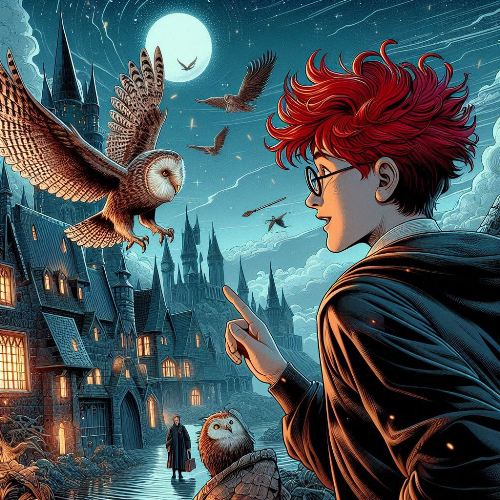








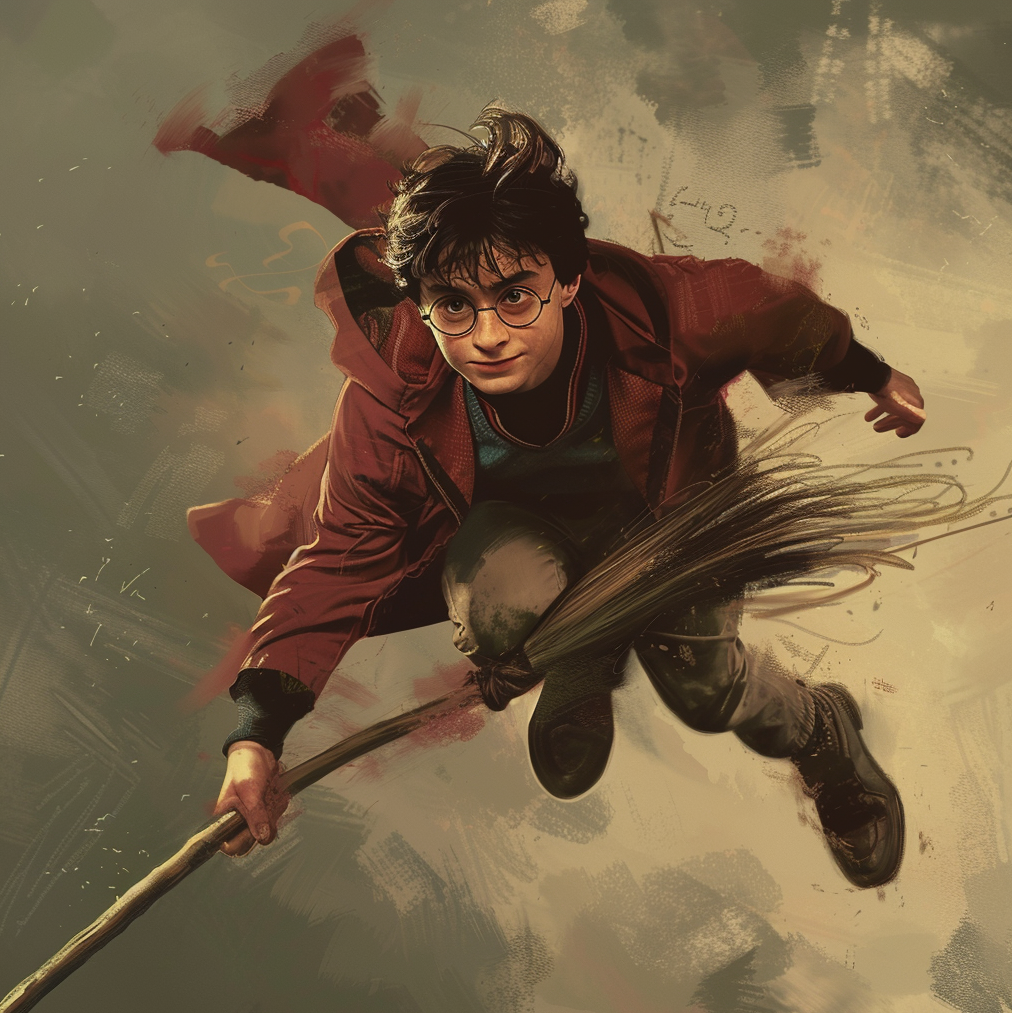









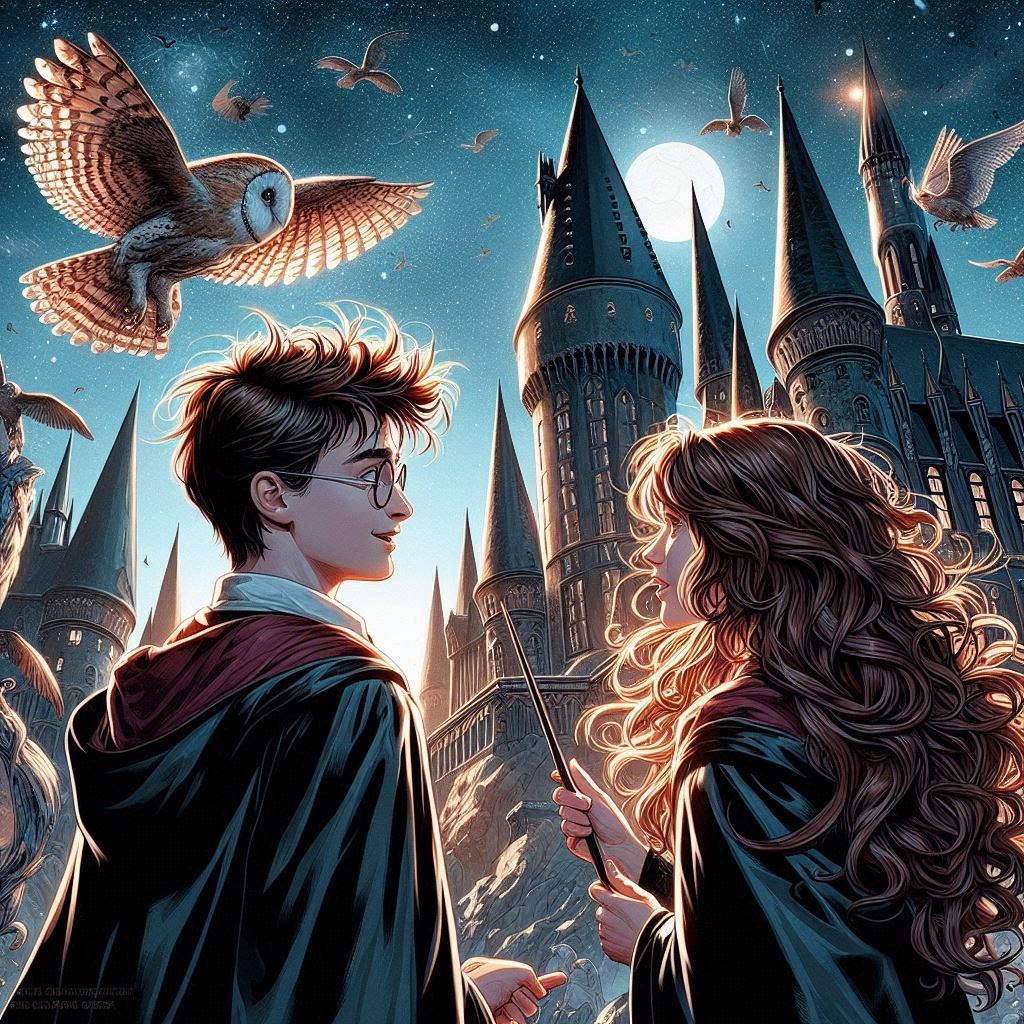








No comments:
Post a Comment